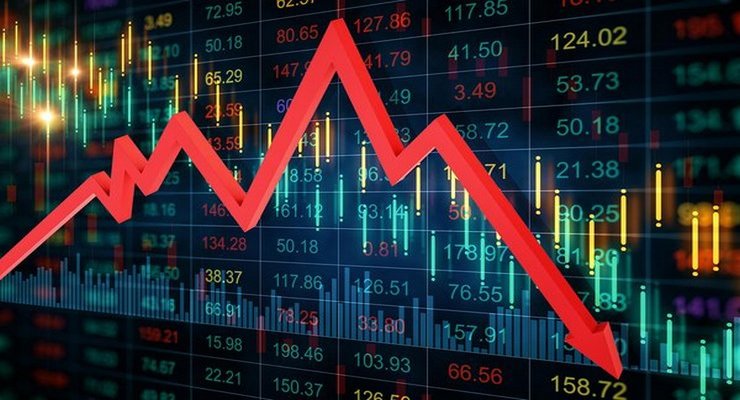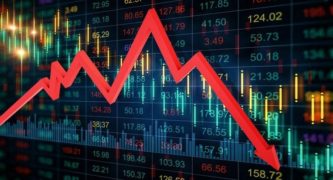
Recently, the video game retailer GameStop and other struggling companies were part of an unprecedented movement in financial history in which armchair traders wildly disrupted the stock market. The traders’ meddling was possible thanks to online forums like those on Reddit and trading platforms such as Robinhood that let people buy and sell stocks for free. The forums and platforms allowed the amateur traders to band together and put a “squeeze” on hedge fund companies that try to profit off floundering companies like GameStop.
At the heart of the shenanigans is a concept known as shorting a stock, in which bets are placed against stocks that are predicted to go down in value. We asked Caltech’s Colin Camerer, the Robert Kirby Professor of Behavioral Economics, to help us better understand what shorting a stock means, and we learned his thoughts on the future of this kind of armchair trading. Camerer is also the director of the T&C Chen Center for Social and Decision Neuroscience in the Tianqiao and Chrissy Chen Institute for Neuroscience.
First off, what does it mean to short a stock?
Buying a stock is easy: somebody else owns it, you buy it from them hoping the price will go up, the trade takes place, and you are done and own the stock.
Short selling is different because it involves selling a stock in the hopes that the price will go down, so that you can buy it back later at a lower price. For example, if you short at $10 and it goes down to $1, you earn $9. But to short the stock you have to “borrow” an actual stock from someone. It is then sold, so the share you borrowed is gone. But the short seller is legally obligated to, at some point, actually buy a share of stock back and return it to the account they borrowed from.
This creates a potentially tricky situation. The short seller might be forced to buy back a share to honor their legal obligation, but if the share price has gone up, they will end up losing money. This is a rare case where somebody else—typically a broker who is concerned you may not be able to afford the buyback—can control your trading.
Are there companies that regularly profit from short selling stocks?
There are hedge funds that specialize in shorting stocks. Many of them are like detectives that research weak companies. They might say, “I’m going to follow this business around and figure out how bad they really are, then I’m going to put information out about this on the internet and drive the company and their stock prices down.”
I am generally on the side of short sellers because they weed out the bad companies. In theory, they take out the puffery in markets that creates prices that are higher than a company’s real value. Take the video rental company Blockbuster, for instance. It’s what we call a zombie company because it is dying a slow death. These zombie companies do have inherent scrap values—their brand names, intellectual property, or real estate—but the price is often inflated relative to fundamental values. So these companies aren’t worthless, they are just worth less than their stock prices reveal. Short sellers help sort this out by reducing the price of zombie companies.
It’s a risky business, but short sellers know this. They often get sued by the companies they short and by the company executives, and this costs money and angst, and, in general, the short sellers run the risk of losing a fortune. They expect they might win a little or lose big. What they do is the opposite of buying a lottery ticket, where you might invest very little and win big.
How did the armchair traders get involved in short selling?
What the Redditors figured out was that they could collectively create what’s called a short squeeze. They knew that there was a lot of short selling because the amount, the “short interest,” is a number that is widely reported. By buying and pumping up the price of GameStop and other stocks, some hedge funds had to buy back their shares at a higher price than what they paid or they would have lost even more money. They were put in a captive position.
How did they pump up the price?
The most famous trader from Reddit is known as “DeepF—ingValue.” The term “deep value” refers to the underlying worth of a company, particularly companies that are struggling, so it takes some analytical skill to figure out what they are really worth. This trader started accumulating the GameStop stock last year, when it was valued at $4.50 a share at its minimum. And I think he had a theory that $4.50 was too low because there was some hidden value. I don’t think he was trying to short squeeze at that time. But then later, he and a lot of other people started to post about the company and talk about how it’s really worth more. They realized that if they could make the price go up, then they might create a short squeeze, in which the hedge funds who were short would be forced by brokers to buy back shares right away. A lot of forces and timing have to go your way, but if you can create a short squeeze, you can make a lot of money.
Why is this sort of thing just happening now?
Short selling has been around for a long time but has been more difficult than just buying stocks (a “long” position). As markets get more liquid, and brokers make it easier to buy and sell in general, short-selling opportunities have increased. For example, in the NASDAQ bubble around the year 2000, a lot of stocks seemed to be overvalued so people wanted to short sell, but there were often not many shares available to borrow.
Did a lot of the Redditors end up making money off their short squeeze?
Some probably did. Basically, it’s like a casino. There were a bunch of Redditors who bought low, sat patiently, and sold high—they made a lot of money. And then there were Redditors who came in later, or who held on too long, and they would have lost a bunch of money, or made “paper profits” but did not sell at the right time to lock in profits.
Whenever prices go way up and way down there is a huge slosh of money from the people who bought low and sold high, and earned a ton of money, and people who bought high and sold low and lost a ton. This is just math.
Do you think we will see armchair traders continue to put the squeeze on hedge funds?
I think that we will continue to see this kind of behavior. Some of these Redditors like DeepF—inValue are good at what they do. They are like underground poker players and have nerves of steel and also have less at stake. They don’t care that there are legal risks. The best of them are good mental mathematicians and have good emotional control. But they don’t want to work in the government or a law firm.
That said, hedge funds are probably trying to hire some of these Redditors themselves as advisers. The smartest companies probably had been aware of this kind of Reddit risk for a while. Now they all are. The best hedge funds are sophisticated and are going to be smarter about this type of thing in the future.
What advice would you give to people who are now becoming interested in investing in the stock market?
Wall Street has a saying that everyone’s a genius in a bull market. If you look at a graph of the stock market, we have been on a really long extended so-called bull run except for March of last year, when there was a big pandemic drop. But even that drop recovered a short while later. With trading platforms like Robinhood, more people are getting into the market, where, at least now, it’s been easier to make money because prices were going up steadily. It’s easy to beat the stock market averages in the short-run … but it’s very difficult to beat the stock market in the long run.
For the average investor, personal trading is like gambling. If you really enjoy it, then you should be willing to lose money on average and accept this loss as the price of entertainment. Otherwise, you should invest in a general group of stocks, a diversified portfolio, which reduces risk, and pay the lowest fees you can find.














 0 comments
0 comments


